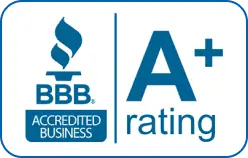Navigating the financial landscape is tough for any company – let alone a start-up or small business. In the early days, securing the necessary growth and keeping operations running smoothly can be challenging, which is where alternative financing comes into play.
These alternatives provide the necessary capital and bring diverse advantages, from flexibility to speed, catering to the unique needs of different business models. These often have less stringent requirements and lengthy processes so small businesses can stay afloat without the hassle.
We’re looking at some of these alternative financing arrangements that open up new pathways for small businesses, paving the way for success in an increasingly competitive market, and their pros and cons. Keep reading to see how your company can benefit from alternative financing.
Key Takeaways of Exploring Alternative Financing Options for Small Businesses Beyond Traditional Bank Loans
Alternative financing gives small businesses access to capital beyond traditional bank loans, with more flexible terms and faster approval times.
SBA loans remain a popular choice due to government backing and favorable repayment options, though they require detailed business planning.
Online platforms offer unsecured business lines and quick funding, ideal for short-term needs but often with higher interest rates.
Angel investors and venture capital firms provide large investments and guidance but often require equity and influence over business decisions.
Crowdfunding can validate business ideas and build early customer support, though it carries risks like public exposure and uncertain results.
Overview of Alternative Financing Options
The financing world extends far beyond the confines of traditional bank loans for small businesses. A spectrum of alternative options is available, each catering to different needs and circumstances.
Often a first stop for many, Small Business Administration (SBA) loans offer government-backed financing, making them more accessible and less risky for lenders and borrowers. They are particularly beneficial for businesses with solid plans but lacking substantial collateral or extensive credit history.
Crowdfunding is another riskier option. This modern approach harnesses the power of the internet to pool funds from a broad audience. Businesses can pitch their ideas directly to potential customers and investors, transforming them into stakeholders. It’s an excellent way for innovative startups to gain capital and a dedicated customer base, but marketing your crowdfunding campaign is vital for success.
For swift and flexible financing, online lenders are increasingly popular. They typically have less stringent eligibility criteria than banks and can provide funds within days. This option suits businesses needing quick cash injections for short-term needs.
Finally, angel investors and venture capital firms are ideal for high-growth potential startups. While they provide substantial funds, they often require equity in return and may ask for involvement in business decisions.
If you’ve exhausted the traditional options, the above four routes could be saving graces in securing finance for your small business.
Small Business Administration (SBA) Loans
Small Business Administration (SBA) loans are a beacon for small businesses seeking financial support. These loans are partially guaranteed by the government, which reduces the risk for lenders and, in turn, broadens the accessibility for small businesses that might not qualify for conventional loans.
SBA loans are renowned for their favorable terms, including lower down payments, flexible overhead requirements, and no collateral for smaller loans.
The application process for SBA loans involves presenting a detailed business plan, financial statements, and credit history. While this might seem daunting, the payoff is a potentially lower interest rate and longer repayment terms than traditional bank loans. SBA loans are versatile, catering to business needs such as working capital, equipment purchases, or even real estate.
However, it’s important to note that securing an SBA loan can be competitive and time-consuming. Businesses must meet specific eligibility criteria, including size standards, financial standing, and operational history. Despite these challenges, SBA loans remain a highly sought-after financing option for their advantageous terms and government-backed reliability.
Crowdfunding and Online Lenders
Two types of online-only alternative financing might appeal to small business owners. Crowdfunding has risen in popularity over the years due to the growth of social media. This method involves presenting a business idea or project online, allowing individuals to contribute small amounts of capital, with the idea that little amounts add up quickly.
Crowdfunding raises funds, tests market viability, and builds a customer base. It’s ideal for businesses with innovative products or services that resonate with a broad audience but carry risks like uncertain funding success and potential intellectual property threats. It also demands rewards for backers and exposes your business to public scrutiny, which can impact your brand.
As for online lending, these platforms offer various loan types, including short-term loans, lines of business credit, and merchant cash advances, often with a simpler and quicker application process than banks and solving short-term cash flow issues.
There are, of course, catches to consider. Online lending offers quick, accessible loans but often at higher interest rates and shorter repayment terms, which can strain a business’s finances. Additionally, some online lenders have less transparent terms, posing risks of predatory practices and impacting your credit score if repayments are missed.
Angel Investors and Venture Capital
Angel investors are typically high-net-worth individuals who provide funding in exchange for equity or convertible debt. They’re often more willing to take risks on early-stage companies and can offer valuable mentorship for founders. However, the capital they can provide is usually less than venture capitalists, and you rely heavily on one person’s investment. Working with angel investors means relinquishing a degree of control and potentially facing differences in business vision.
Venture capital (VC) firms invest in startups with high growth potential, usually at a later stage than angel investors. VCs offer substantial funding and bring in-depth market knowledge, extensive networks, and operational expertise. This can accelerate growth significantly.
On the downside, VCs often require a significant share of equity, leading to a substantial loss of control for the original entrepreneurs. Their focus on high returns can also drive a business towards rapid scaling, which might not align with the founder’s original vision or pace.
In both cases, the injection of capital and expertise can be transformative, but it requires careful alignment of goals and expectations. Businesses must be prepared to negotiate terms and manage the changes that come with such partnerships.

Frequently Asked Questions about Exploring Alternative Financing Options for Small Businesses Beyond Traditional Bank Loans
What is the Best Way to Finance a Small Business?
The best financing method depends on the business’s stage and needs. Many small business owners start with personal savings, then explore options like SBA loans, lines of personal credit, or alternative lenders. Some may also consider crowdfunding or bringing in investors if the growth plan calls for it.
What’s the Difference Between Angel Investors and Venture Capital Firms?
Angel investors are typically individuals who invest their own money early in a company’s development, often in exchange for equity. Venture capital firms, on the other hand, invest pooled funds from multiple sources into businesses with higher growth potential, usually at later stages.
What Makes Alternative Financing Attractive to Small Businesses?
Alternative small business lending options offer more flexibility, faster access to funds, and often fewer requirements compared to traditional bank loans. This makes them a practical solution for startups or small businesses that may struggle to meet strict bank lending standards.
How Do SBA Loans Differ from Conventional Bank Loans?
SBA loans are partially guaranteed by the government, which reduces the lender’s risk and makes it easier for small businesses to qualify. They usually offer longer repayment terms and lower down payments compared to traditional bank loans.
Conclusion and Summary of Exploring Alternative Financing Options for Small Businesses Beyond Traditional Bank Loans
Exploring alternative small business financing options is crucial for small businesses looking to thrive. Each method offers unique benefits and challenges, from SBA small business loans to venture capital. We encourage business owners to carefully research and consider these diverse options to see which might be the right fit.
Learning how to secure SBA loans can be a great starting point for those interested in government-backed financing. By contacting us today, you can embrace the journey to find the financial solution that best propels your business forward.
While traditional bank financing remains a go-to for established businesses with a good credit score, there’s a broader range of loan programs and financial institutions available today, each offering flexible terms to meet unique business planning goals. From community banks and credit unions known for fostering more personal relationships, to other financial institutions and online platforms offering fast access to unsecured business lines, the options are increasingly diverse.














